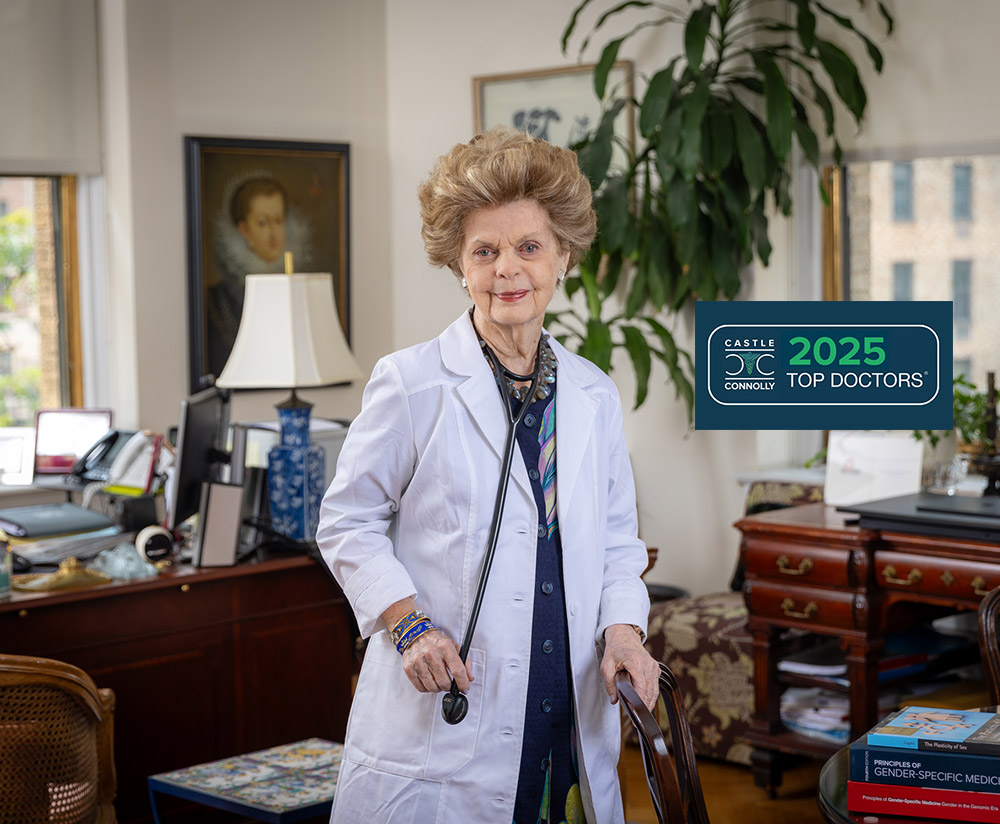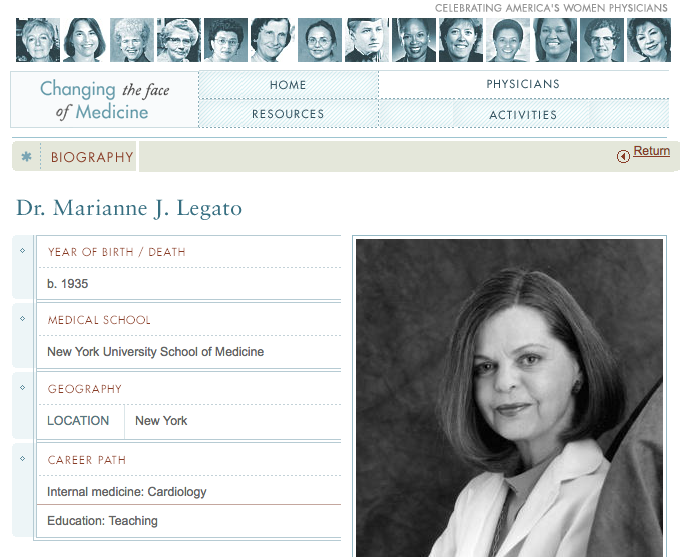
Board-certified internal medicine specialist, focusing on comprehensive care for individual patients. She is a Professor Emerita of Clinical Medicine at Columbia University College of Physicians & Surgeons and an Adjunct Professor of Medicine at Johns Hopkins Medical School. Dr. Legato is also the Director of the Foundation for Gender-Specific Medicine, which she founded in 2006 as a continuation of her work with The Partnership for Gender-Specific Medicine at Columbia University. She received an honorary PhD from the University of Panama in 2015 for her work on the differences between men and women’s normal physiology and their sex-specific experience of disease. She has a strong educational background, including training at prestigious institutions such as New York University College of Medicine and New York Presbyterian Hospital. Dr. Legato has conducted extensive research on the anatomy and function of the heart cell and has collaborated with renowned experts in the field. She is a scientific advisor and has played a key role in developing strategies to improve women’s healthcare. Dr. Legato emphasizes personalized medicine, tailoring treatment to each patient’s unique physiology and ensuring effective strategies for disease prevention and treatment. A pioneer in the field of gender-specific medicine, she led the effort to establish sex and gender as important variables in the way we think not just about the experience and treatment of disease, but also health and lifestyle.
Awarded Top Doctors in 2025 by Castle Connolly, recognizing top-tier health systems, hospitals, and physician practices for their exceptional commitment to delivering high-quality care.
Exposing the misconceptions many of us have about heart disease, renowned cardiologist Dr. Marianne J. Legato explains the factors that put women specifically at risk and what treatments are most effective. Healthcare educators will gain knowledge and understaning of the realities of women and heart disease, increasing the chance that more lives will be saved. Real women, real stories, and real remedies.

In 2004, Dr. Legato was listed in this exhibit in the National Library of Medicine (NLM) as a top American woman physician who changed the face of medicine. This traveling exhibition examined the lives and achievements of women in medicine since they first gained admissions to American medical schools over 150 years ago. 61 libraries hosted the exhibit.
They treat the whole patient, striving to balance their personal lives and the needs of individual patients and entire communities. Deciding which issues to focus upon, they direct research and funding and are instrumental in implementing the policies, developing the drugs and treatments, and drafting the legislation to meet emerging medical challenges. They are…America’s women physicians.
So not all that different from men, then? “Changing the Face of Medicine” celebrates women’s achievement of parity with men in American medicine, while giving due attention to the often appalling adversities over which they have triumphed.
I advocate the use of biological sex/gender as an important variable in medical investigation; I believe that to do so is to provoke questions we never would otherwise have asked.
Gender-Specific research is crescendoing into a position of crucial importance in medicine; last month I was invited to address the Special Interest Group in Women’s Health at the NIH. To my great delight, they changed their name to the Special Interest Group in Gender-Specific Medicine after my visit there. I think my career has been varied and useful, and although I acknowledge that some of my path has been off the beaten track, as it were, I think I have been instrumental in pointing out that studying women is an intellectual imperative, that women’s health is more than a political or feminist issue or a marketing tool for hospitals and that ultimately, women are making men an offer they can’t refuse.
